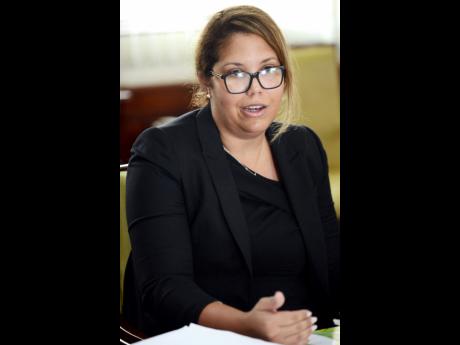Big bucks to go into ganja business
Getting any one or a combination of the many licences to participate in Jamaica's nascent marijuana industry calls for big bucks, as prices start at US$2,500 (approximately J$315,000). However, chairman of the Cannabis Licensing Authority (CLA), Hyacinth Lightbourne, is adamant that Jamaica must not make the mistake of having a lax regulatory regime, as this would put the country in a bad position regarding its international obligations.
"We do understand that there are a lot of requirements, but we are dealing with an industry that has to be heavily regulated, so you do need a lot of requirements," Lightbourne told a Gleaner Editors' Forum recently.
The application process starts with a non-refundable application processing fee of US$300 per individual and US$500 for a company business or cooperative. Thereafter, it is a question of the type of licence. These range from cultivator's licence to processing, transport, along with retail, and research and development.
The cultivator's licence has three tiers. Tier One covers plots under one acre, with a licence fee of US$2,000. Tier Two is for plots of two to five acres, at US$2,500 per acre. While Tier Three is for plots over five acres at US$3,000 per acre.
The processing licence comes in two tiers, with Tier One costing $3,500 and Tier Two costing $10,000. While retail, both a herb house and the therapeutic licences, will cost US$2,500 each.
The other costs are highlighted on the CLS's website, cla.org.jm.
The CLA chairman said the application process is not simply a matter of filling out a form and pushing paper.
PRE-LICENCE
INSPECTION
"Once you've brought everything in, you have to go through the FID (Financial Investigation Division). There has to be pre-licence inspection of the actual location in which you plan to operate. It is not simply dropping off an application and then somebody is just looking at it. There are attendant costs which have to be covered somehow," Lightbourne said about the non-refundable fees.
CLA board member Delano Seiveright, while not defending the big numbers, said stakeholders are already finding ways around the seemingly high hurdles.
"From what we have seen out there, a number of these small farmers and future small farmers are coming together as co-operatives, and they intend to apply for licences and as such share the costs, share the knowledge, the technology and the experiences, and that's much better," Seiveright stated.
Lightbourne added that the costs of the licences are a reflection of the reality facing Jamaica, as it seeks to travel uncharted waters and not make the mistakes of some places where liberalisation came before proper regulation. She is arguing that regulation is for the protection of Jamaica.
"This has to be a heavily regulated industry, and heavy regulations cost money. We understand that people looking on may think it's costly, but for what we have to do to ensure that the health of the nation is not at risk, we feel it is not costly," she stressed.

